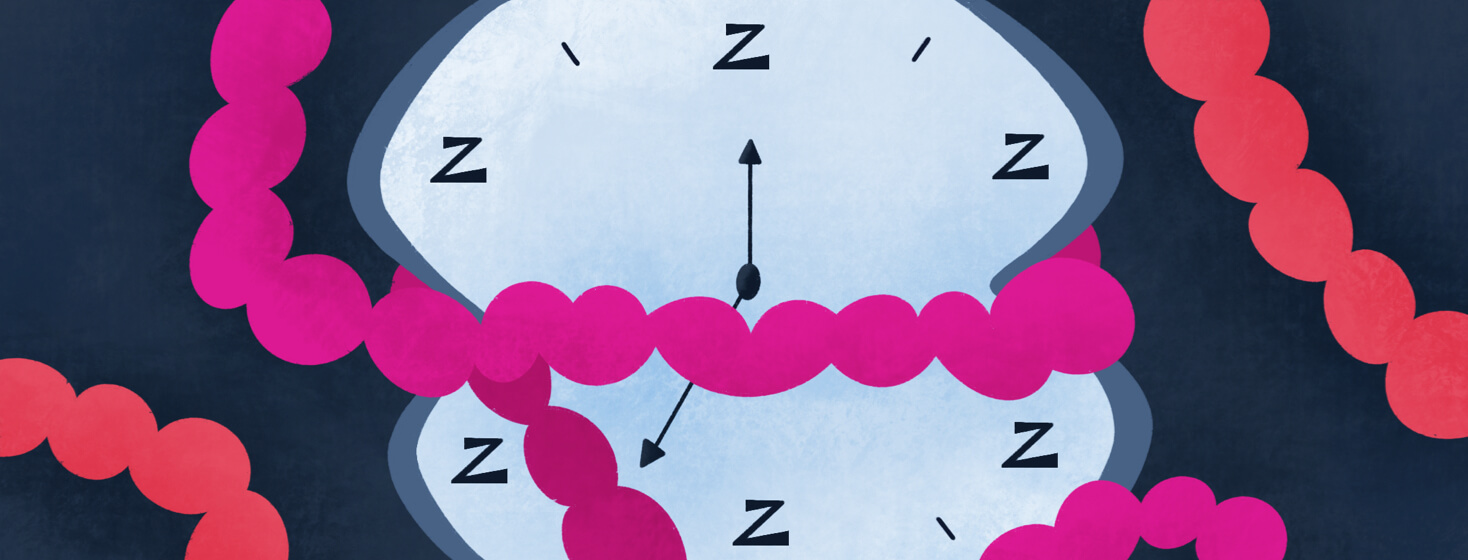The Crossroad Between Chronic Digestive Disorders and Insomnia
Do these scenarios sound familiar?
- You easily fall asleep. At 3 AM, you’re rudely awakened by a bowel spasm. You leap from bed and head for the bathroom. Once back in bed, you can’t fall asleep.
- You settle into sleep, but waves of cramps keep you awake most of the night. You may even try to use the toilet, to no avail.
Digestion and sleep should “shake hands” at night, promising a night of restful sleep. Unfortunately, those with chronic digestive disorders miss out on this agreement, tossing and turning.
Why can’t they get the sleep they need?
Digestive system basics
To better understand how digestive problems can disrupt sleep, it’s good to know how the digestive system normally works.
The digestive system includes the mouth, throat, esophagus, stomach, small and large intestines, rectum, and anus — everything necessary to consume food and excrete its waste. It also includes processing organs — the salivary glands, liver, gallbladder, and pancreas — which generate digestive juices needed to break down the food and water we consume.
Here's how digestion happens:
- Ingestion: we eat or drink something.
- Propulsion: our body moves food and water through the digestive system (also called motility).
- Secretion: our body releases enzymes to aid digestion.
- Digestion: our organs break down food and water using mechanical and chemical processes.
- Absorption: our intestine absorbs nutrients made available through digestion.
- Excretion: our bodies eliminate the waste products of digested food and water.
Digestion during sleep
The digestive system doesn’t “sleep” during sleep, but it slows considerably due to cues from the circadian system. Then, it follows nighttime protocols set up by the gut-brain axis. This 2-way signaling occurs between the digestive tract and the brain as we sleep.1
Digestive functions change as we enter sleep:
- Ingestion: we don’t eat or drink during sleep*.
- Propulsion: motility slows to a crawl, then quickens when we wake up.
- Secretion: enzyme release after dinner peaks between 10 PM and 2 AM, then drops off; also, saliva production drops off dramatically.
- Digestion: our stomach breaks down dinner using enzymes and mechanical processes during the first half of the night./li>
- Absorption: the intestine mostly absorbs water during sleep while containing digested food it eventually empties through contractions—known as peristalsis — after we awaken.
- Excretion: our bodies eliminate the waste products of food and water upon awakening.
This is how digestion is supposed to work during sleep. Unfortunately, those with chronic digestive disorders are more likely to face disrupted sleep.
Chronic digestive disorders and sleep disruption
These digestive disorders can disrupt sleep.
Inflammatory bowel disease (IBD)
IBD includes 2 common types: Crohn’s disease and ulcerative colitis.
- Crohn’s disease (CD) – This occurs when the digestive tract lining becomes inflamed, sometimes penetrating deeper layers.
- Ulcerative colitis (UC) – This occurs when the innermost lining of the large intestine and rectum become inflamed, causing ulcers.
Recent studies show that half of those with IBD (both CD and UC) report clinically significant insomnia, with higher rates experienced by those with active symptoms.2
Irritable bowel syndrome (IBS)
This chronic intestinal disorder affects the large intestine, causing stomach pain, bloating, constipation, cramping, diarrhea, and gas. Research shows insomnia to be far more prevalent in people with IBS, likely due to improper signaling along the gut-brain axis. 1
When GI dysfunction disrupts sleep
When the digestive system doesn’t function as expected during sleep, it can lead to sleeplessness. For instance, needing to urinate or move your bowels in the middle of the night — especially with urgency — is not considered normal. Neither should you experience diarrhea, cramping, or other discomfort: the GI tract should be in quiet mode.
However, any kind of nighttime elimination problem will lead to wakefulness because, let’s face it, you’re not in bed. You’re in the bathroom. The more sleep disruptions caused by bathroom trips, discomfort, and/or pain, the worse the sleep.
Can lack of sleep disrupt GI function?
Insomnia deprives people of sleep. In chronic cases, it causes physical and emotional stress. These stresses have a detrimental impact on the digestive system. For instance, stress can:3
- Alter motility
- Cause diarrhea or constipation
- Induce cramping
- Affect nutrient absorption
- Weaken the intestinal barrier
Also: People with IBD who sleep less than 6 hours a night face a higher incidence of symptoms. And people with IBS who can’t sleep can expect “next-day” flareups of symptoms.4,5
What you can do about insomnia and digestive disorders
- Treat any chronic digestive disorders you’ve been diagnosed with.
- If you’ve been diagnosed with chronic insomnia, make sure you treat it as well.
- Talk to your doctor if you face ongoing, undiagnosed digestive issues related to poor sleep (by causing insomnia or being caused by insomnia); they’ll need diagnosis and treatment.
*One exception: Sleep-related eating disorders, commonly known as “sleep eating,” describes a rare parasomnia in which people eat food while being completely asleep.

Join the conversation